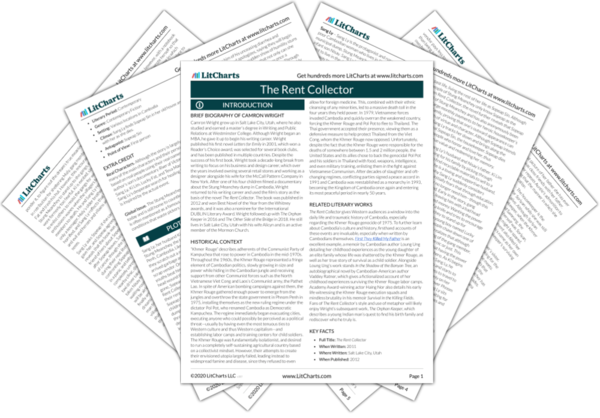Ki’s knife represents the villagers’ temptation for power and revenge. After a Stung Meanchey gang beats and robs Ki, he uses the little money he has to buy a knife, which he keeps strapped to his leg. Although Ki feels that the knife gives him the power to fight and defend himself, Sang Ly is wary of it, recognizing that Ki’s desire for power is also tainted by a desire for vengeance—to hurt the people who hurt him. In spite of Sang Ly’s wariness of the knife, after the gang members beat up Lucky Fat, a local orphan, Sang Ly also briefly thinks of using Ki’s knife, suggesting that even she is tempted by the idea of power to fight evil. Sopeap also believes that evil should be fought with the knife, suggesting that Ki should fight power with power, but when the villagers chase down one of the gang members, a teenage boy, and viciously beat him to death, Ki discovers that he does not have the stomach to actually use his knife or thus to exert his own power against a child. Although the villagers use their power to fight evil, Ki realizes that the use of such power against a teenage boy seems horrific rather than heroic, and his knife remains in hand, unused. From this moment on, now that Ki is disillusioned with the power to defend, protect, or avenge, the knife is never seen again.
The Knife Quotes in The Rent Collector
“There’s a time and place for defending yourself,” he says calmly, “whether it be with words—or with a knife. Keep reading; your stories will teach you that.”
It was just days ago I wanted to kill the criminals myself. But my desire was for revenge on crooks, thugs—dark images of evil that gathered in my head when I pictured the men who beat my husband and Lucky Fat—not boys, especially this boy.












